
Конспект урока по английскому языку
«День космонавтики. Юрий Гагарин» («Space day. Yuri Gagarin»)
Цели урока
1. Познавательный аспект – ознакомить учащихся с историей советской космонавтики, первым космонавтом Земли.
2. Воспитательный аспект – воспитание чувства любви и сопричастности к родине, истории родной страны.
3. Развивающий аспект –развитие навыков аудирования, монологической речи.
Ход урока:
Слово учителя:
Good morning everyone! The topic of our today's lesson is « Space day. Yuri Gagarin ». Today we will speak about the history of the space day and about the first cosmonaut Yuri Gagarin.
First of all let’s revise the words on the topic “Space”. (для разминки, разогрева)
Solar system- солнечная система
space- космос
planet- планета
star- звезда
Sun- солнце
Earth- Земля
satellite- спутник
Moon- луна
spaceship- космический корабль
cosmonaut- космонавт
universe- вселенная
galaxy- галактика
weightlessness- невесомость
Mach the words and descriptions:
1. A planet 2. a galaxy 3.the Solar System
4. A spaceship 5. a space 6. the universe
a)…… is all space and everything that exists in it.
b)…….is a huge group of stars and planets.
c)…….is a place for above the Earth where there is no air.
d)…….is a rocket that can travel in space.
e)……is a large, round object that goes round a star.
f)…..is the Sun together with the planets , сomets and asteroids.
Key: 1-e, 2-b, 3-f, 4-d , 5-c , 6-a
There are 9 planets in the Solar system. Listen to the poem about planets and name them.
Planets
Here are nine planets that we know.
Round and round the Sun they go.
Mercury, Venus, Earth, and Mars,
These are the planets near our star.
Jupiter, Saturn, Uranus, too.
Neptune, Pluto, we can't see you.
These are the nine planets that we know.
Round and round the Sun they go.
Now you should match the words and their transcriptions.
1. Mercury a) ['sætən]
2. Uranus b) [mɜrkjəri]
3. Venus c) [viːnəs]
4. Neptune d) [ɝθ]
5. Earth e) ['juər(ə)nəs]
6. Mars f) ['neptjuːn]
7. Saturn g) [ma:z]
Look at the pictures and name the planet:
1. Mars
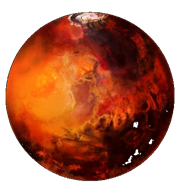
2. Pluto

3. Saturn
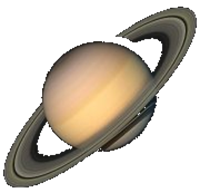
4. Venus
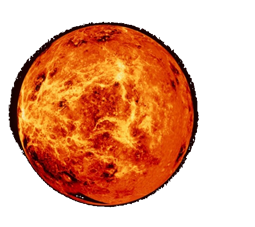
5. Mercury
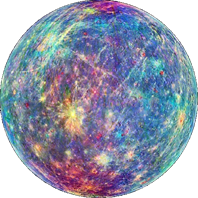
6. Jupiter
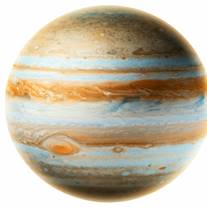
7. Uranus
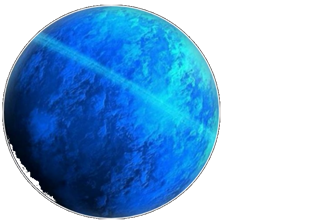
8.Earth

9. Neptune
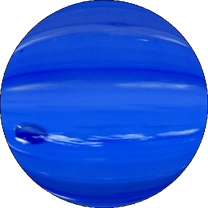
Arrange the planet in order from the Sun: Mercury, Venus, Earth, Mars, Jupiter, Saturn, Uranus, Neptune, Pluto.
Read the texts and do the tasks below:
SPACE EXPLORATION. Исследование космоса
1. The history of space exploration in Russia started with Konstantin Tsiolkovsky, a maths teacher from Kaluga. Tsiolkovsky never built or launched a rocket, but he was the first person to understand the main ideas behind rocket science – as early as 1903. He predicted and solved many of the problems in rocket engineering, and he made designs for several rockets. He dreamt of a space age.
2. It was nearly 60 years before Tsiolkovsky’s dream came true. On 12th April, 1961, at exactly 9.07 a. m. Vostok 1 lifted off for its 108-minute flight. There was one man inside – Yuri Gagarin, a Soviet pilot and the first person in the world to fly into outer space. During his one orbit around the earth, Gagarin had some food and water; so he was also the first person to eat and drink in conditions of weightlessness. He didn’t have a camera to take photos, but he observed different parts of the earth.
3. Gagarin’s flight started a new stage in the history of exploration. It made more space travel possible. Now, 50 years later, many cosmonauts and engineers from different countries have made flights to outer space. Some of them have stayed in space for several months. They have done a lot of research and experiments.
4. In the 1990s Russian scientists started thinking about sending tourists into outer space. The world’s first space tourist was American millionaire, Dennis Tito. He went on an eight-day holiday in May 2001 in a Russian spaceship. He visited the International Space Station and landed afterwards in Kazakhstan with the two other members of the flight team. ‘I was worried that I might not feel well in space’, he said, ‘but I felt the best I’ve felt in my whole life. It was a trip to paradise’. Space scientists are now discussing the next idea: two-week space holidays with a trip around the moon, for $100 million… anyone interested?
1. Прочитайте текст и подберите к каждому абзацу подходящий заголовок. Один из заголовков – лишний. (5 points)
A. Holiday-makers in space
B. Yuri Gagarin, the first cosmonaut
C. Outer space as a workplace
D. Father of rocket science
E. The flight that changed the world
2. Сопоставьте слова и фразы (1- 9) с переводом (A-I) и дефинициями (a - i). (27 points)
|
1) space exploration 2) launch 3) predict 4) come true 5) rocket engineering 6) weightlessness 7) outer space 8) research 9) spaceship |
A. запускать B. исполняться C. исследование D. исследование космоса E. космический корабль F. невесомость G. открытый космос H. предсказывать I. ракетостроение |
a) a vehicle designed to be launched into space b) building and testing of rockets c) careful study of a given subject, field, or problem, undertaken to discover facts or principles d) journeys to space to find out what it's like e) space beyond the atmosphere of the earth f) the condition in space when nothing has any weight. g) to happen in real life h) to say that something will happen i) to send something into space |
3. Верно или нет? True or false? (12 points)
1) Konstantin Tsiolkovsky was the first person to build a rocket.
2) Yuri Gagarin went round the Earth once.
3) During his flight Gagarin took photos of the Earth.
4) Space flight is now international.
5) Space engineers do a lot of scientific work.
6) The Americans took the first tourist into space.
4. Заполните пропуски в предложениях, используя слова из упр. 2. (8 points)
1) Cosmonauts and engineers have done a lot of … and experiments.
2) The history of … in Russia started with Konstantin Tsiolkovsky.
3) Tsiolkovsky predicted and solved many of the problems in ….
4) Tsiolkovsky’s dream … on 12th April, 1961.
5) Yuri Gagarin was the first person in the world to fly into ….
ASTRONAUT
In 1961 on the 12th of April, a Russian man called Yuri Gagarin became the first human being to travel into outer space. Eight years later, a man called Neil Armstrong became the first human being to walk on the moon and step onto another world away from the Earth.
Astronauts are trained to pilot, command or work as a crew member of a spacecraft. They can also perform scientific experiments, repair damaged satellites and collect information about other distant planets and stars.
Space is an extremely dangerous place for a human being. For this reason astronauts wear space suits which allow them to breathe. If an astronaut did not wear a space suit for protection, they would explode. This is because human body is not built to function without pressure of the Earth’s atmosphere.
1. Найдите в тексте ответы на вопросы:
1) Who was the first human being to travel into outer space?
2) In which year did this take place?
3) Who became the first man to walk on the moon?
4) What do astronauts wear for protection in space?
5) If an astronaut went to space without a space suit, what would happen?
2. Сопоставьте вопросы и ответы. (8 points)
|
1) Where was the first cosmonaut from? 2) When did the first man walk in the moon? 3) What do astronauts do in space? 4) Why can’t a human being do without a space suit in outer space?
|
a) Because human body is not built to function without pressure of the Earth’s atmosphere. b) In 1969. c) Neil Armstrong. d) Russia. e) They perform scientific experiments, repair damaged satellites and collect information about other distant planets and stars. |
3. Выпишите из текста синонимы данных слов (слова в тексте выделены). (14 points)
carry out, cosmonaut, enable, far, fix, person, spaceship
4. Запишите слова в подходящую колонку таблицы. (15 points)
|
PEOPLE |
THINGS IN SPACE |
VERBS |
|
|
|
|
astronaut, astronomer, construct, cosmonaut, engineer, galaxy, launch, orbit, perform, planet, repair, satellite, scientist, star, travel
Материалы на данной страницы взяты из открытых источников либо размещены пользователем в соответствии с договором-офертой сайта. Вы можете сообщить о нарушении.